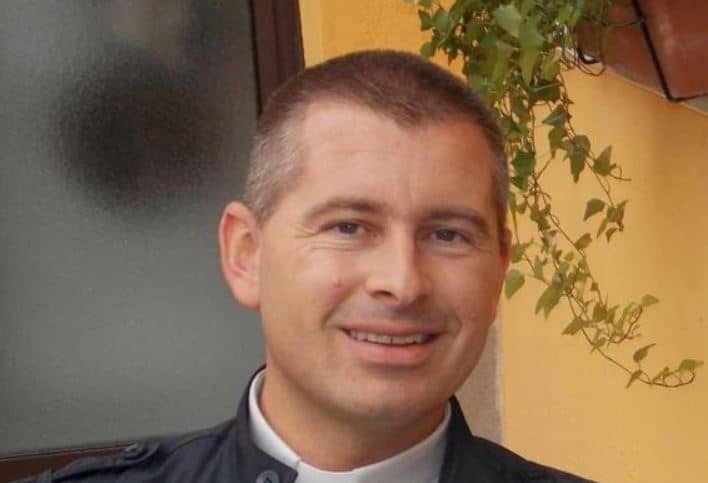ROME – When police in the northeastern Italian town of Tolmezo on Sunday issued citations to 15 parishioners at the Church of the Conversion of St. Paul who’d gathered for prayer, theoretically risking fines of anywhere from $440 to $3,330, the local mayor strongly defended the action.
“I’m sorry for people who felt the need for the comfort of prayer in church, but the rules aimed at containing the coronavirus require a strong compression of our most fundamental liberties,” said Mayor Francesco Brollo.
“I recommend, once again, that all of us respect the instruction to stay at home,” Brollo said. “This isn’t the time to let up.”
According to a new poll, a strong majority of Italians appear to agree. A robust 68 percent of Italians said they support the suspension of public Masses to fight the transmission of the coronavirus, with only 23 percent opposed and 9 percent offering no opinion.
A similarly strong 61 percent also backed the suspension of public funerals, with only a private blessing over the casket currently permitted for immediate family, with 29 percent opposed.
Only on the question of leaving churches open for private prayer was there a clear division of opinion. Forty-five percent of Italians said they would support a total shutdown of churches and precisely the same number, 45 percent, said they would oppose it, with 10 percent saying they either have no opinion or don’t know what to think.
Over the weekend, the government of Italian Prime Minister Giuseppe Conte issued new regulations permitting small weddings and baptisms as well as private prayer in churches, provided the church is located along the route someone would be following anyway to get to an approved work activity or to visit a grocery store, pharmacy or health care facility.
RELATED: Italy okays weddings and baptisms, but warns church not a motive for leaving home
The results of the new poll did not distinguish between Italians who attended Mass regularly prior to the pandemic and those who didn’t. Overall, roughly twenty percent of the national population reports attending Mass at least once a week.
The poll was conducted by the well-known Ipsos polling firm March 24-26, using a random sample of 1,000 Italians aged 18 to 75.
Sixty-three percent of Italians said they approve of the Church’s use of technology, such as livestreaming Masses and prayers, to remain in contact with the faithful. However, only 23 percent say they’re actually taking advantage of those offerings at least semi-regularly, and most of those appear to be people who were already frequent Mass-goers.
The poll also attempted to gauge the spiritual impact of the coronavirus crisis, which, as of Monday, had claimed 11,591 lives in Italy, the highest death toll in the world.
Roughly a quarter of Italians, 26 percent, said they feel the need for a more intense spiritual life amid the pandemic, with 8 percent saying they feel a “much greater” spiritual interest and an additional 18 percent saying it’s “somewhat” greater. Moreover, 16 percent of Italians reported they’re praying more amid the virus, with 4 percent saying they’re praying “much more” and 12 percent saying it’s “somewhat” more.
According to analysts, however, that mini-boom is largely confined to the 70-plus percent of the country that declared itself believing prior to the outbreak of the pandemic. For the 27 percent of Italians who said they were non-believers before the crisis, there’s little evidence of any greater interest in a spiritual life.
“It seems that people driven by the present situation to pray more, or to intensify their spiritual lives, are the ones for whom prayer was already more less a familiar practice or a habit, while those who didn’t really pray much before aren’t doing so in greater numbers now,” wrote the Roman newspaper Il Messaggero.
Roughly two-thirds of Italians also reported positive attitudes about the contributions being made by Catholic parishes, movements and associations in support of the country’s most fragile population during the crisis, as well as the psychological and moral support being offered by the Church to people struck by the coronavirus.
Over 70 percent of Italians rejected the idea that the coronavirus pandemic is a form of divine punishment for a society judged to be excessively secularized or sinful, and more than two-thirds said they don’t see the situation in terms of good v. evil.
Roughly half the country, however, did tell pollsters they believe there’s a message from God in the pandemic, an effort to call humanity back “to the things that really matter,” as Pope Francis suggested in his Urbi et Orbi blessing from an empty St. Peter’s Square last Friday.


















